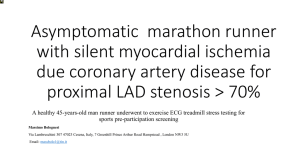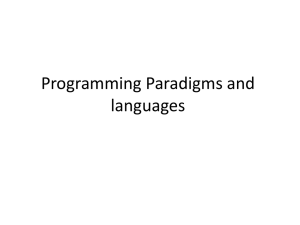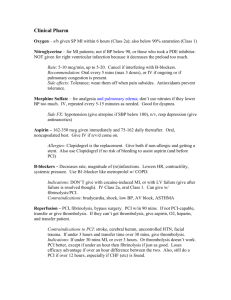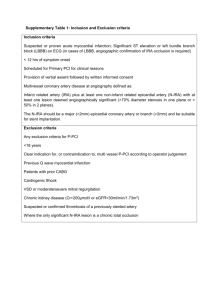clinical outcome, procedural success and
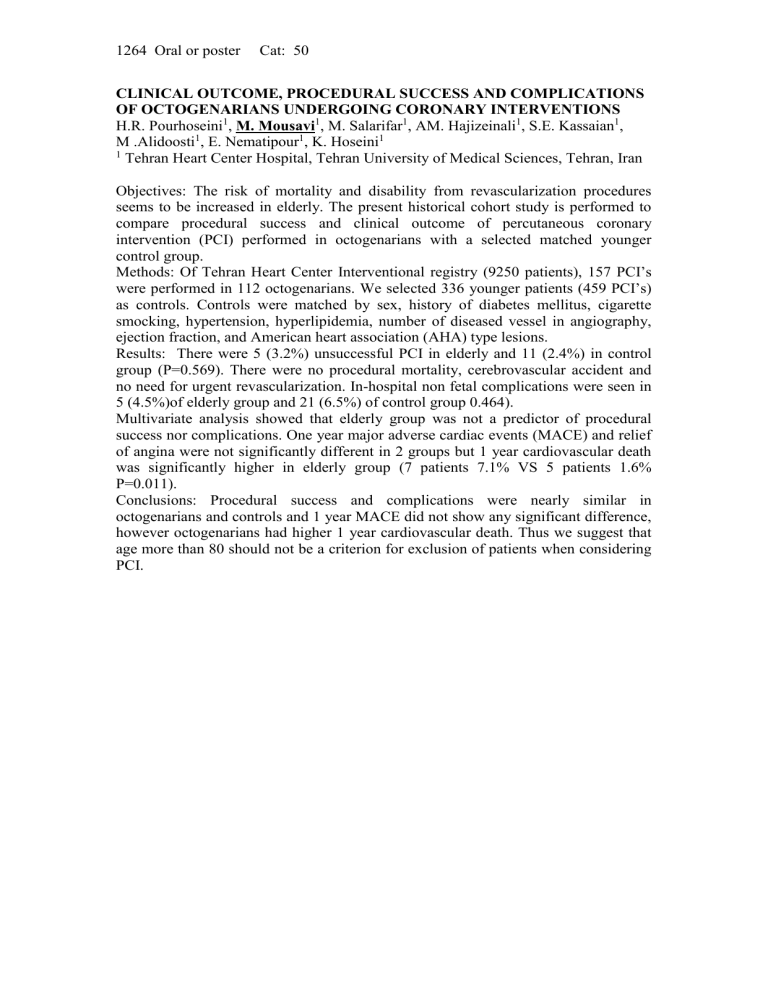
1264 Oral or poster Cat: 50
CLINICAL OUTCOME, PROCEDURAL SUCCESS AND COMPLICATIONS
OF OCTOGENARIANS UNDERGOING CORONARY INTERVENTIONS
H.R. Pourhoseini 1 , M. Mousavi 1 , M. Salarifar 1 , AM. Hajizeinali 1 , S.E. Kassaian 1 ,
M .Alidoosti
1
, E. Nematipour
1
, K. Hoseini
1
1
Tehran Heart Center Hospital, Tehran University of Medical Sciences, Tehran, Iran
Objectives: The risk of mortality and disability from revascularization procedures seems to be increased in elderly. The present historical cohort study is performed to compare procedural success and clinical outcome of percutaneous coronary intervention (PCI) performed in octogenarians with a selected matched younger control group.
Methods: Of Tehran Heart Center Interventional registry (9250 patients), 157 PCI’s were performed in 112 octogenarians. We selected 336 younger patients (459 PCI’s) as controls. Controls were matched by sex, history of diabetes mellitus, cigarette smocking, hypertension, hyperlipidemia, number of diseased vessel in angiography, ejection fraction, and American heart association (AHA) type lesions.
Results: There were 5 (3.2%) unsuccessful PCI in elderly and 11 (2.4%) in control group (P=0.569). There were no procedural mortality, cerebrovascular accident and no need for urgent revascularization. In-hospital non fetal complications were seen in
5 (4.5%)of elderly group and 21 (6.5%) of control group 0.464).
Multivariate analysis showed that elderly group was not a predictor of procedural success nor complications. One year major adverse cardiac events (MACE) and relief of angina were not significantly different in 2 groups but 1 year cardiovascular death was significantly higher in elderly group (7 patients 7.1% VS 5 patients 1.6%
P=0.011).
Conclusions: Procedural success and complications were nearly similar in octogenarians and controls and 1 year MACE did not show any significant difference, however octogenarians had higher 1 year cardiovascular death. Thus we suggest that age more than 80 should not be a criterion for exclusion of patients when considering
PCI.


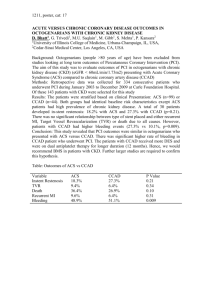
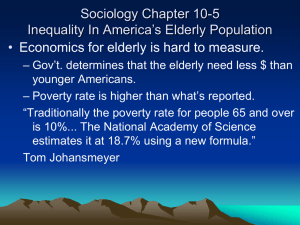
![Amir Shams [ card ] 02](http://s2.studylib.net/store/data/005340099_1-e713f7ae67edd60d4c53ae5bb9448166-300x300.png)
